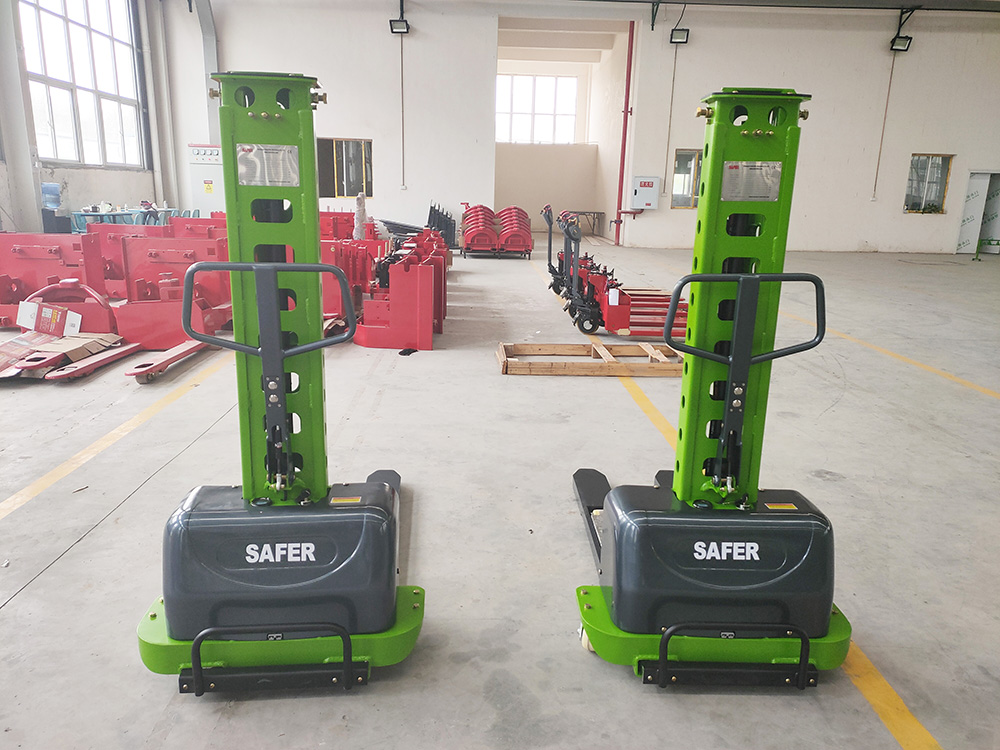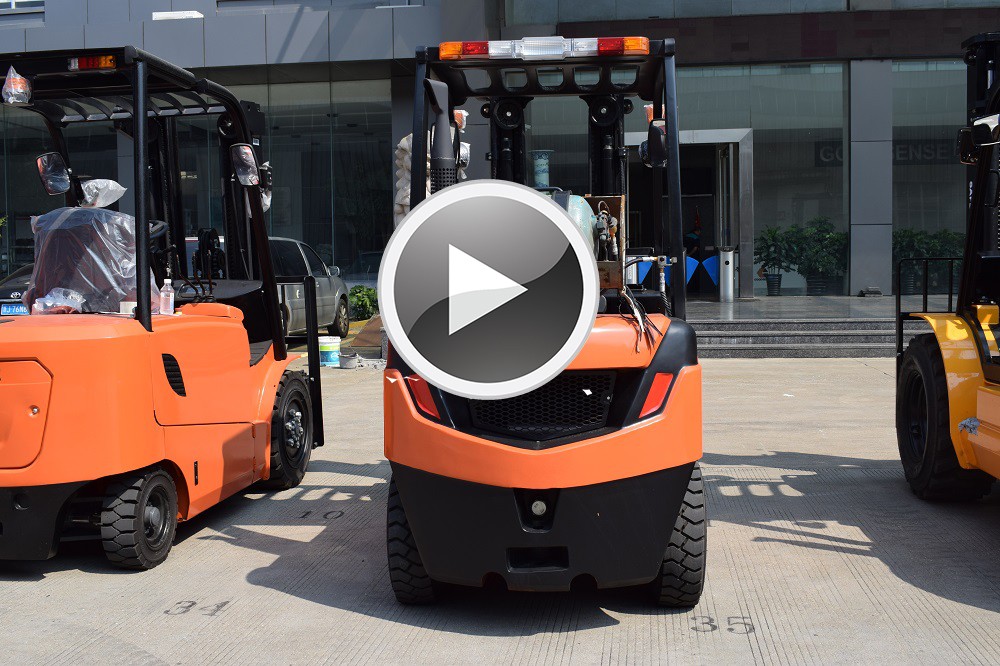While the Chinese forklift industry is growing rapidly, the domestic customer base is also growing rapidly. Benefiting from the 4 trillion start-up capital of the Chinese government, the logistics industry, one of the top ten revitalization industries, is also a favorable development for the forklift industry, so there is reason to believe that the impact of the economic crisis in the Chinese forklift industry in the next three years will not be as widespread. As estimated as it is, Chinese forklift companies should be able to step out of the swamp and move towards a more brilliant tomorrow.
Through this economic crisis, domestic customers are more cautious in purchasing large equipment such as forklifts. Domestic customers often discuss what kind of fuel forklifts will be more economical, but so far there is no comprehensive information for everyone to compare. Here, the author compares the four commonly used models of diesel forklifts, gasoline forklifts, LPG forklifts and electric forklifts. I hope that domestic customers can choose different models for reference and "seeing the fog". effect.
Diesel engines, gasoline engines and liquefied petroleum gas engines are all internal combustion engines. They all burn fuel and convert the chemical energy in the fuel into mechanical energy that drives the vehicle forward by pushing the pistons in the cylinder. Therefore, the working principle of the three is generally The same is true; battery forklifts are in the form of chemical energy converted to mechanical energy. The main difference between the LPG engine, the gasoline engine and the diesel engine is the difference in the ignition mode caused by the physical properties of the fuel, thus showing different thermal efficiency and economy. The detailed differences and price comparisons of the four models are comprehensive. See the table on the next page for details.
From the economic point of view, electric forklifts are the best, followed by LPG forklifts, gasoline forklifts and diesel forklifts. Electric forklifts have short working hours and long charging time, and are generally not suitable for multi-shift work (of course, 2 to 4 battery groups can be considered to solve the problem); battery forklifts are only suitable for working conditions, acceleration and The starting performance is obviously worse than that of the internal combustion engine; the most important thing is that the customer needs a good environment for charging and discharging in order to avoid battery explosion, and the water needs to be replenished regularly, otherwise the life of the battery pack will be greatly reduced. This compares the limitations of its use, the overall cost performance is not higher than LPG (liquefied petroleum gas) forklift in some occasions; but if the user does not consider the charging time and the user's site conditions are very good, electric forklift is the first choice.
Taken together, even with the economic benefits, forklift customers will choose LPG forklifts as the main model. In the United States, for example, 90% of internal combustion forklifts below 4t are LPG forklifts, while in China, diesel forklifts account for more than 90%. The contrast between the two markets is large. Of course, this special situation in China is also an inevitable stage in other countries in the initial market. The reason is that many customers do not really understand the true cost performance of each model, but with the improvement of the collective economic awareness of customers, this pattern should It will be quickly broken in the near future.
Advantages of LPG forklifts
The reason why foreign customers like to use LPG forklifts is mainly because of their many advantages: 1 emissions are good, and many food industries use LPG forklifts. 2 It is beneficial to improve the lubrication condition of the engine and prolong the service life of the engine by more than one time. 3 Improve the working condition of the engine. 4 Reduce fuel costs, at current oil prices, about 1/2 of the daily savings in diesel costs, and with the adjustment of the country's fuel tax policy, the economic benefits are obvious. 5 has reliable security. 6 Because the dual fuel forklift spares two kinds of fuel, the working time of this type of forklift is increased by about 1 time, which is beneficial to the customer's multi-shift work system.
After that, it is necessary to consider which brand of LPG gas system to choose. At present, there are many domestic brands. Due to the very small sales in China, some forklift mainframe manufacturers are not very concerned about this field, and many well-known forklift companies in China are at the forefront of this industry. They are following the first-class international forklift companies. The trend has successfully developed the LPG forklift with the US IMPCO conversion unit. After 10 years of sales feedback, the matching performance is superior.
The US company IMPCO is the world's leading manufacturer of forklift LPG equipment, and its products have obtained the UL certification of the most authoritative organization in the United States. The company's proportional mixer always provides the engine with the best air-fuel ratio of combustible gas mixture under any operating conditions, and is equipped with an automatically adjustable piston gas valve. Usually the gas valve is closed, with the characteristics of automatic flame-off and tempering protection; easy start, stable performance and strong economy are the characteristics of the IMPCO proportional mixer.
Fuel tax policy will change the direction of forklift consumption
Many international forklift industry experts believe that LPG forklifts are the most cost-effective low-poison internal combustion forklifts in the world, especially for urban and logistics industries. If China's fuel tax continues, the difference between gasoline and diesel and LPG will become increasingly significant; the rise in oil prices is also a risk that users need to consider, and LPG is relatively more competitive.
China's current fuel tax policy is the most effective way to curb the use of conventional petroleum conventional fuels (such as diesel and gasoline). From the situation of developed countries, different fuel tax policies directly lead to huge differences in the consumption structure of the forklift industry: in Europe and Japan, where high fuel taxes are widely applied, new energy vehicles, LPG and electric forklifts, account for a relatively high proportion. The proportion of the LPG trucks in the United States, where high fuel taxes are imposed, is very obvious.
The fuel tax policy is an important way to implement the national energy conservation strategy. It is irreplaceable in suppressing the excessive growth of oil consumption and improving energy efficiency. The fuel tax policy will definitely lead to a major shift in the consumption orientation of forklifts, and LPG forklifts will be the main beneficiaries. Logistics and the industry using forklifts are costly due to heavy cargo stacking tasks. This requires companies to scientifically purchase models to minimize costs and achieve higher efficiency. Therefore, the introduction of the fuel tax will also encourage these companies to work harder to save on the cost of oil. With the increasing regulation and improvement of China's environmental protection regulations, it will definitely play a catalytic role in the sales of LPG forklifts, making the LPG forklifts develop rapidly in the Chinese market.
Pre:Shanghai Saferlifts: Talking about the development status and prospects of alternative forklift trucks for energy forklifts
Next:Classification of forklifts


